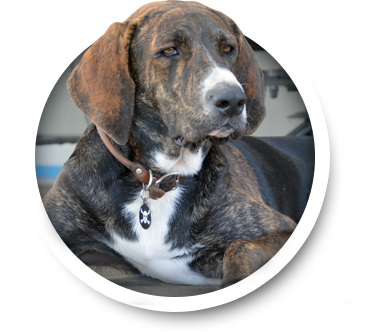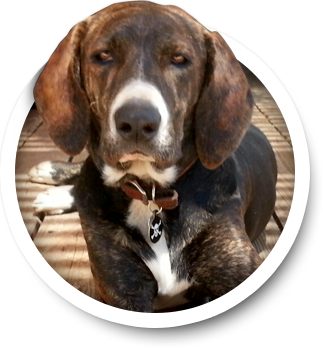Posted on 2/22/2016
Whenever we talk about exhaust service, most people normally think about exhaust pipes and mufflers. Well, actually, exhaust service is a lot more comprehensive these days. For example, catalytic converters were mandated in 1976 and on-board emission control computers in 1990. Governmental emissions requirements have forced manufacturers to come up with much more sophisticated ways to comply with environmental regulations.
Exhaust service has really become exhaust and emissions service. High-tech computer controlled emissions devices are now a big part of exhaust service. Because it is so sophisticated, your vehicle manufacturer recommends you have your emission system checked out by a qualified Los Altos exhaust technician regularly to make sure everything is working right - usually every 6 months or 10,000 miles/16,000 kilometers.
If your Check Engine light comes on, especially if it's flashing, get your car looked at right away. Technicians at Allied Auto Works handle emission problems everyday. You might have exhaust or emissions trouble if your car is difficult to start, runs rough, is noisy or smoking. Call Allied Auto Works at 650.968.7227 to schedule an appointment if you experience these problems.
Let's review the exhaust system. We will start from the top and start with the exhaust manifold. That is the part that attaches to the engine and collects the exhaust from the cylinders and directs it into the exhaust pipe. Exhaust gaskets help seal the connection with the manifold and various other joints along the way. If the manifold is cracked or loose, or a gasket is leaking, dangerous gases could escape into the passenger compartment, where you ride. Carbon monoxide can be deadly, so it is important that your exhaust system doesn't leak. The exhaust pipes connect the various components. They can rust or be damaged by a rock, so they need to be inspected periodically.
Next is the catalytic converter. This part looks like a muffler. It changes chemicals that are dangerous to your health and the environment into harmless carbon dioxide and water. It doesn't require any maintenance itself. But eventually they wear out. You will find this out when your car fails an emissions inspection.
Now the muffler. Its main job is to quiet engine noises. Mufflers work by either absorbing or baffling sound. And you can actually customize your car's sound with different mufflers - anything from whisper quiet to bad-boy rumbley. Rusted or road-damaged mufflers can leak and need to be replaced right away.
The exhaust system is attached to the car by a series of hangers and clamps. These fasteners hold the system in place. When hangers come loose or break, hot exhaust components can touch and melt wires, hoses and lines.
Finally, we end at the tailpipe. This is the final outlet for the exhaust. These can be plain-Jane or pretty flashy. Also, the oxygen sensors monitor the oxygen content of the exhaust so the engine control computer can adjust the fuel-to-air mix to keep the car running right.
Exhaust and emissions service covers plain old pipes and high-tech computers. It impacts everything from life and death safety due to exhaust leaks, to fine-tuning the sound of your ride.
Posted on 2/22/2016

Duke here and I get a lot customers, like you, from all across the South Bay who write to me with questions or feedback.
One common question I am asked is: What is a differential and what does it do? You may have been told your differential needs service, or seen it as an option up on the service menu. Differential service covers a lot of things, so let's first talk about what a differential does.
As you drive through a turn, your outside wheels and inside wheels turn at different speeds. Kind of like the cars going around a race track - the ones driving in the outside lanes have a greater distance to travel than the cars in the inside lanes. The differential is what allows the outside and inside drive wheels to rotate at slightly different speeds so that the tires don't hop or skip while taking corners, or lose traction in dirt or snow. Differentials have gears in them that transfer the power from the drive train to your wheels - which is why they're often referred to as gear boxes. The gears need to be very strong to do this work, and they need to be properly protected so that they'll last.
All vehicles have some form of differential. If you have a front-wheel drive car, your differential is often called a transaxle and is located in the front. If you have rear-wheel drive, the differential is in the back of the car. If you have a four-wheel drive vehicle, you will have a differential in the front and the back - and in the middle as well. The center differential adjusts for differences in speed between the front and rear wheels.
Differential fluid lubricates and cools the gears. Over time, the fluid can get dirty from bits of the gears grinding off. The additives that keep the fluid clean and protect the differential break down over time. So your vehicle manufacturer has scheduled intervals for you to have your differential fluid changed.
Differentials are hard working mechanisms, and, along with the gears in a manual transmission, need to be serviced regularly with high-quality, replacement fluid. Your La Honda automotive service advisor can give you more information as to when your next differential service is recommended. You can also ask if they have a record of when the service was last completed.
As with most service intervals, if you are driving under more severe conditions, you will want to service your differential more frequently. "Severe service" conditions are defined in most owners' manuals, and include: frequent starts and stops, short trips, cold weather, hot weather and towing. All these conditions add to the stress of the vehicle and its parts. Also, off-roading in CA can be especially hard on differentials, especially if you cross streams. Proper service will extend the life of your gears and keep them running more smoothly. If you have never had your differential checked, visit contact-us for more information.
Well I hope I was able to help with what a Differential Service is today!
Duke
Posted on 2/22/2016

Duke here and today we are going to learn about the cabin air filer, let's get barking!
What is a cabin air filter?
Is it:
- A filter for a house in the middle of the woods?
- A fresh, piney scent?
- A filter for the passenger compartment of your car?
Clever you, it's 3.
A cabin air filter cleans the outside air before it comes into the passenger compartment. It filters out dust, pollen, spores, bacteria, pollutants, sparrows, exhaust gas and odors.
These high tech filters can block particles larger than 3 microns. By contrast, a grain of sand is about 200 microns.
Now not all vehicles have cabin filters. They are fairly new on the scene. About forty percent of new vehicles come with cabin air filters, but the number is growing every year.
Cabin air filters can make for a very nice driving environment. Your car can be a haven during allergy season with very little dust and pollen getting into the cabin. However, the filter eventually gets clogged. When this happens, your heating and air conditioning flow can become restricted. The filter can even get kind of smelly.
Allied Auto Works
2073 Grant Road
Los Altos, CA 94024
650.968.7227
Check your owner's manual for recommended replacement intervals. Often, the owner's manual forgets about the cabin air filter, so ask your service technician for a recommendation. It's usually every year or 12,000 miles/ 19,000 kilometers. Change it sooner if you drive in dusty conditions or if you start to notice an odor from your ventilation system.
So keep your cabin air filter clean.
It may not help with your brother-in-law or the dogs in the backseat, but it will make your driving experience more enjoyable and mine too!
Duke
Posted on 2/22/2016

Hey Los Altos, it's Cayenne and do you hear loud noises under the hood when you turn on your air conditioner?
Do you only get cool air sporadically? If so, it is time to get your air conditioner checked. It's real easy to take your car's air conditioner for granted. Just push the right buttons and out comes cool, dry, clean air. But your air conditioning system needs attention from time to time to help it keep its cool.
When most people in Los Altos hear the words "air conditioning problems", it sends a shiver up their spine. That is because the air conditioning system is fairly complex. It has a lot of parts and when it's broken, it's expensive to repair.
What things can we do to prevent air conditioning breakdowns?
A common cause of air conditioning failure is leaks. Water and air can leak into the system. The system doesn't work as well with air in it. And water can cause rust that leads to damage of the A/C components. Also, refrigerant, the stuff that makes the air cold, can leak out, reducing the efficiency of the system, making it work harder to cool the air. Periodically evacuating the air conditioning system and recharging it keeps the proper amount of clean refrigerant in the system so it cools better and lasts longer.
You should also run the air conditioner regularly, even in a frosty Los Altos winter, so that it lubricates itself and keeps the seals from drying out, which leads to leaks. Your owner's manual will have recommendations for how often to service your air conditioner. Of course, if it's not working right, now is the time to get it checked. Allied Auto Works can inspect and test your air conditioning and offer evacuation and recharge services. This goes a long way to avoiding having to bring your air conditioner in for major repairs.
New environmental laws have stopped the manufacture of Freon, a refrigerant that was common in cars made before 1993. There is a very limited supply of Freon so the price is very steep. It may not be worth its weight in gold, but it probably is worth its weight in silver. If you have an older vehicle that uses Freon, you may want to consider having it retrofitted to use the new R134-A refrigerant. It will pay for itself in the long run.
So, if your AC is just a lot of hot air, bring it in to Allied Auto Works for an inspection and tell them Cayenne sent you!
Allied Auto Works
2073 Grant Road
Los Altos, CA 94024
650.968.7227